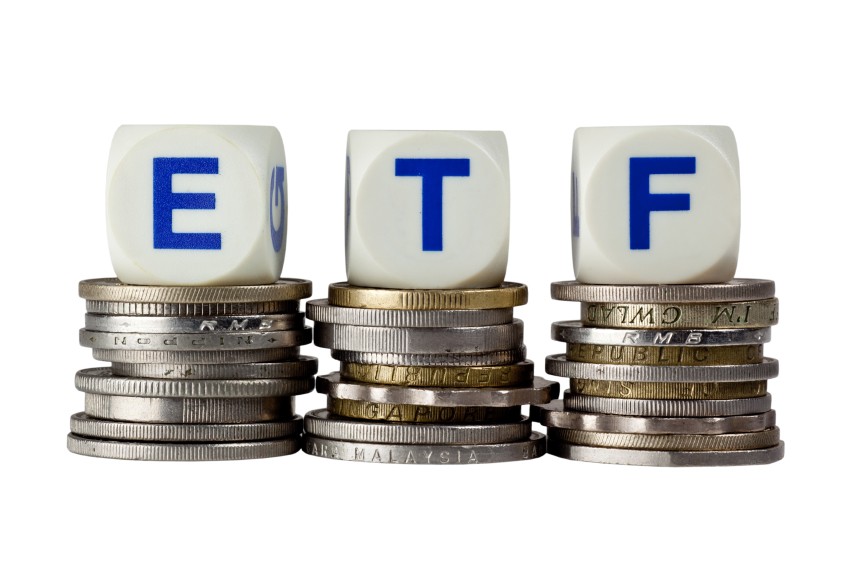ETF Investing Guide The Single (But Serious) Disadvantage of ETFs
Post on: 8 Апрель, 2015 No Comment

Theres one disadvantage of ETFs: you have to pay to purchase and sell them, just as you do with individual stocks. Mutual funds, in contrast, are purchased and sold after the market closes with no fees (if you deal directly with the mutual fund company and avoid funds with loads).
The cost to purchase or sell ETFs is (1) the cost of a stock trade (or multiple trades if you are buying multiple ETFs) plus (2) the difference between the buying price and selling price (the spread) at any given moment.
- The cost of stock trades — namely of trading commissions — is entirely in your control: you just have to select a brokerage firm that offers low cost trades. The criteria for selecting a brokerage are discussed in The Four Criteria for Picking a Brokerage ; the cost of trades is a key factor, and it rules out all the full service brokerages. Buying ETFs at $7-20 a trade in an online brokerage account generally makes sense. Buying ETFs at $200 a trade generally doesnt, because the transaction costs can easily outweigh the lower annual fees and convenience. So the ideal product is to combine ETFs with ultra low cost online trading.
- The spreads on ETFs depend on their liquidity and trading volumes. A Smith Barney study based on January 2002 trades found that spreads on domestic ETFs averaged 0.33% (0.087% when weighted by market cap) and on foreign ETFs 0.87% (0.59% when weighted by market cap).
Given that the spreads on purchasing ETFs exceed the 0.05% cost advantage of an ETF portfolio over an equivalent Vanguard fund portfolio, why would you want to use ETFs? There are six reasons:
- If you are investing for the long term, the cost of the spread is eventually outweighed by the cheaper annual fees of the ETFs.
- The compounded return of index mutual funds will be lower than equivalent ETFs in a taxable account because of capital gains distributions. The after-Federal-tax return for investors who held the Vanguard 500 fund in the year ending 9/30/2003 (without selling the fund shares at the end of the period), for example, was 0.72% lower than the pre-tax return. Including state and local taxes, the difference would have been even larger. In contrast, the S&P 500 ETFs made no capital gains distributions in the last few years.
- The benefits of tax-loss selling (discussed in Combining Tax-Loss Selling & Rebalancing ) could easily outweigh the trading commissions and spreads, even in a modestly sized account. Effective tax-loss selling can give you a $3,000 annual deduction without affecting the composition of your portfolio.
- Ease of tax-loss selling enables you to rebalance your portfolio, when you would otherwise avoid doing so. Portfolio rebalancing (discussed in Rebalancing Rules ) should lower your risk and boost your long-run returns.
- International funds lose performance to (legal) market timers. (I discuss this in the context of closed-end funds in Why Use Closed-End Funds? ) ETFs and closed-end funds do not, so their performance should be superior to equivalent index mutual funds.
- As ETFs become more popular and competition increases, annual expenses should fall further and spreads contract. A crucial attraction of purchasing ETFs in an online brokerage account is that you can easily shop among all the families of ETFs because they trade like stocks, so you can pick the ETFs with the lowest expenses and narrowest spreads. Competition in the ETF market will therefore drive down annual fees and reduce spreads. In contrast, the effective cost of transferring assets between fund families or managing a portfolio spread across multiple fund families inhibits competition in the mutual fund market, so fees will likely fall more slowly there.
In aggregate, ETFs will likely be considerably more cost effective if you are investing reasonably large sums and your trading commissions are low.
What if you contribute $100 per month to your fund account, or hold all of your assets in a tax free account? Then index mutual funds make more sense. Paying $7-20 trading commission on every $100 you invest will cripple your returns.
But even then, ETFs can sometimes offer benefits. Once you have built up a significant holding in index mutual funds, you can sell them and transfer your assets to ETFs in a one-time transaction that allows you to benefit from the ETFs’ lower fees from then on. (You need to be careful not to realize capital gains if you do this.) So even for investors making regular contributions to a fund, a hybrid ETF-mutual fund approach may be optimal.
In the next section, well discuss specific ETFs suitable for a core portfolio, and how to select an online brokerage.
Previous: ETFs Are Cheaper Than Index Mutual Funds
Next: Summary: A Better Approach














